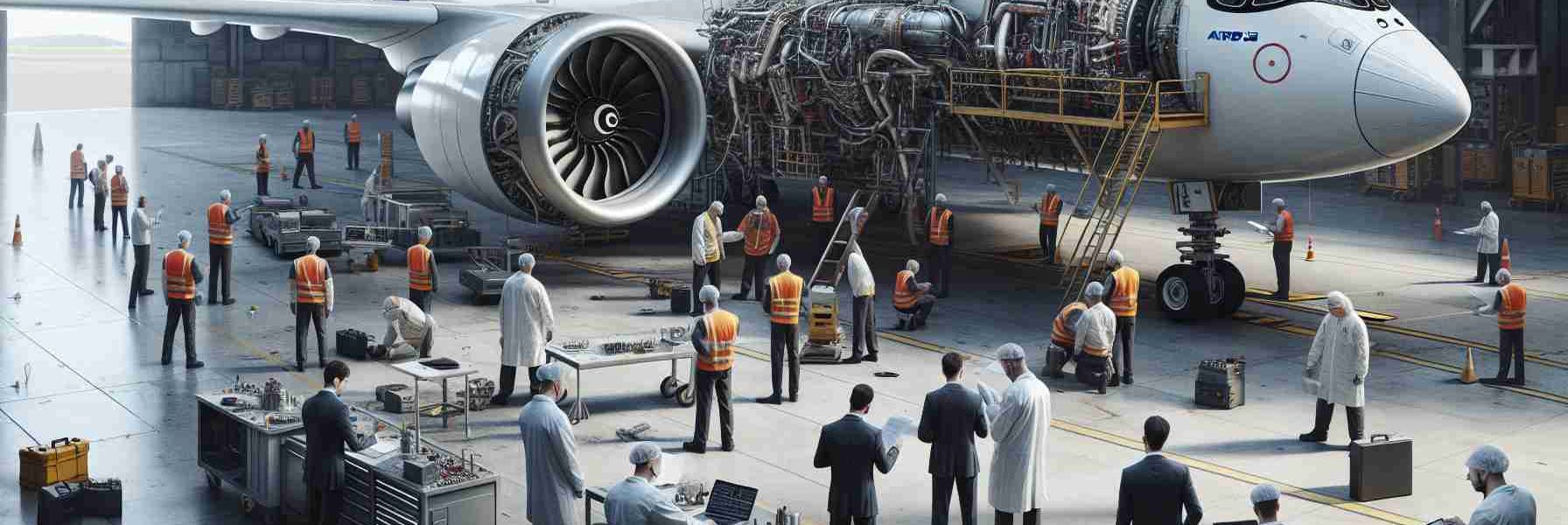An urgent investigation has been initiated following an engine malfunction on a major airline’s Airbus A350 aircraft. Authorities are working diligently to ensure the safety of all passengers and prevent any further incidents.
In response to the recent engine fire on a Cathay Pacific flight, aviation safety agencies have mandated comprehensive inspections for a specific number of Airbus A350 planes currently in operation. The affected aircraft will undergo thorough examinations to identify and rectify any potential issues with engine fuel lines.
Following the discovery of defective components in several A350s powered by Rolls-Royce engines, airlines have taken proactive measures to ground certain aircraft for necessary checks. This collaborative effort aims to address safety concerns and mitigate the risk of similar incidents occurring in the future.
The aviation community has come together to prioritize passenger safety and uphold industry standards. By swiftly addressing these engine-related challenges, airlines can continue to provide reliable and secure air travel services to passengers across the globe.
Investigation Unveils Critical Engine Irregularities on Airbus A350 Aircraft
An urgent investigation sparked by an engine malfunction on a prominent airline’s Airbus A350 has revealed crucial findings that shed light on the pressing concerns within the aviation industry. Delving deeper into the issue, authorities have unearthed a series of troubling facts that raise significant questions about the safety and reliability of these aircraft.
Key Questions Arising:
1. What specific engine components are prone to defects on Airbus A350 aircraft?
2. How widespread is the issue of faulty engine fuel lines across the Airbus A350 fleet?
3. Are there any identifiable patterns or triggers behind these engine malfunctions that have gone unnoticed until now?
Answers Revealed:
1. The investigation has pinpointed critical vulnerabilities in the design of certain engine fuel lines, potentially leading to widespread technical malfunctions.
2. A significant number of Airbus A350 planes have now been flagged for rigorous inspections due to concerns surrounding the integrity of their engine systems.
3. The root causes of these engine irregularities are under intense scrutiny to determine whether they are isolated incidents or symptomatic of larger systemic flaws.
Key Challenges and Controversies:
The aviation industry faces a multitude of challenges in addressing the engine issues plaguing Airbus A350 aircraft. From logistical hurdles associated with conducting widespread inspections to potential disruptions in flight schedules, resolving these matters poses a complex set of obstacles.
Advantages and Disadvantages:
Advantages:
– Enhanced safety measures resulting from thorough inspections and maintenance protocols.
– Increased awareness and vigilance surrounding engine issues, leading to a more proactive approach to aviation safety.
Disadvantages:
– Potential financial strain on airlines due to the grounding of affected Airbus A350 aircraft.
– Reputational risks for manufacturers and operators as concerns over engine reliability come to the forefront.
In conclusion, while the investigation into engine problems on Airbus A350 planes has revealed critical insights, the path to resolving these issues is fraught with challenges. By tackling these concerns head-on and prioritizing safety above all else, the aviation industry can strive towards a future where passengers can board flights with confidence in the aircraft’s reliability and operational integrity.
For further information on aviation safety and industry updates, visit International Air Transport Association for comprehensive insights into global air travel standards and regulations.




